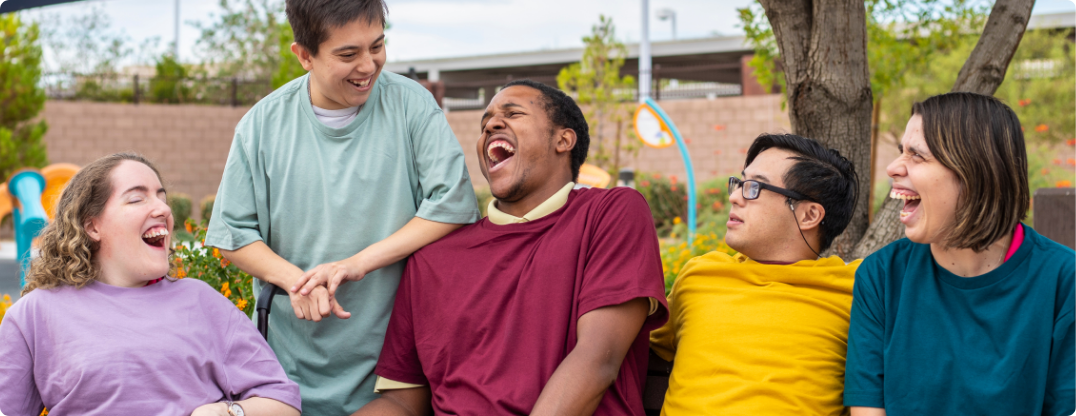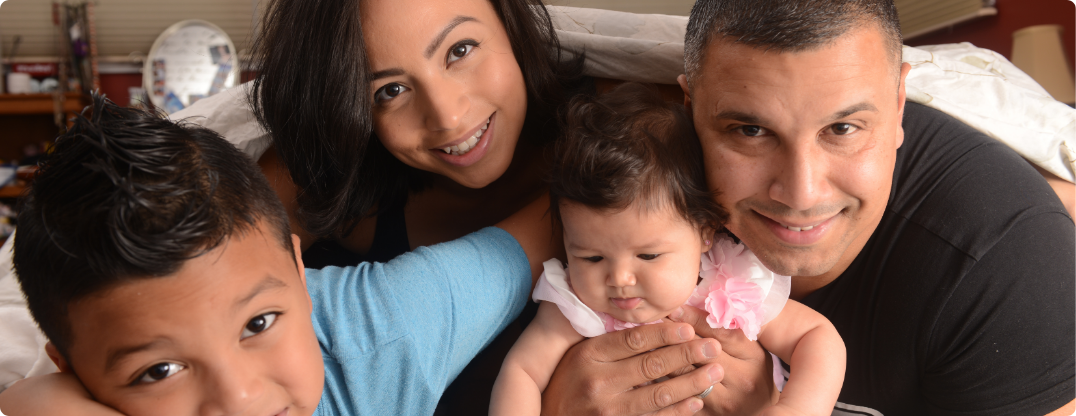How an adult with a disability makes important life decisions is the personal choice of that adult and their loved ones. Options exist to help both the adult with a disability and their family members/circle of support.
Supported Decision Making
Supported decision-making (SDM) is a process that helps people with developmental disabilities make choices and decisions about their lives. It involves providing information, assistance, and support to help the individual understand their options and make informed decisions without relinquishing their legal right to make decisions about their lives.
With SDM, a person with a disability:
- Chooses a person or a team of trusted people to help understand, make, and communicate their decisions
- May rely heavily on their supporters when making decisions
- Remains in control of their life decisions
Supported decision-making is a very flexible process; as the person gains experience, the areas in which they seek support and the people who they choose to support them may change.
How to support SDM for people with developmental disabilities:
- Respect the person’s preferences and choices: Listen to what the person wants; ask about their preferences and values
- Use a person-centered thinking – or even better, person-driven thinking approach: Involve the person in the decision-making process and focus on their goals and aspirations
- Provide support and assistance as needed: help gather information, organize options, and weigh pros and cons. This toolkit from the Autistic Self-Advocacy Network, The Right to Make Choices: International Laws and Decision-Making by People with Disabilities, may help – in comes in an Easy Read Edition and a Families Version
Please see National Resource Center for Supported Decision-Making, and for informative videos, UC Davis Health – Mind Institute.
Conservatorship
General Conservatorships are often for elderly people, but can also be for younger people who have been seriously impaired, like in a car accident, for example.
Limited conservatorships are for people with intellectual and developmental disabilities. A judge will appoint a conservator(s) to make decisions for the person with the disability which could include deciding on support, education, medical, and/or other services and responding to a crisis when needed.
Rights a judge may assign to a conservator may include the right:
- To determine residence
- To have access to confidential records
- To get married
- To enter into contracts
- To give consent for medical treatment
- To control social and sexual contacts
- To make educational decisions
A judge must also provide the conservator(s) with information about how to help the person with a disability make their own decisions, how to end or change the conservatorship, and what their responsibilities are as the conservator(s). A conservator must help the person make their own decisions, inform them of decisions made on their behalf, and support the person in being as independent as possible. It’s important to note that limited conservatorship may not be appropriate for everyone.
The Probate Conservatorship Reform and Supported Decision-Making Act, (Assembly Bill 1663), created a law that defines Supported Decision-Making in California. Changes to the conservatorship law include who may be a conservator, selection of a conservator, inclusion of least restrictive alternatives attempted in a conservatorship petition, and investigation and reporting duties of court investigators. The new law also establishes a conservatorship alternative program, defines supported decision-making, and creates a process for entering a supported decision-making agreement.
For more info, please see Limited Conservatorship Q&A from the Superior Court of CA, County of Santa Clara.
Durable Power of Attorney
A durable power of attorney (POA) agreement allows one person to name another person to make financial or other decisions on their behalf for as long as the POA exists.
Power of Attorney: Do You Need One?
Advance Health Care Directive
An Advance Directive, also known as a Durable Power of Attorney for Healthcare, is a legal document. It allows you to state in advance what you want to do about your healthcare if you become unable to make your own healthcare decisions.
For more on Supported Health Care Decision-Making, please see Partners in Health: Implementing Supported Healthcare Decision-Making for Users of Augmentative and Alternative Communication
Local professionals often present for us on a variety of topics. For more information, view this video recording of Ellen Cookman, Estate Planning Attorney, which focuses on non-conserved adults: Legal Decision-Making at Age 18, Supporting High-Functioning Adults with Disabilities.










